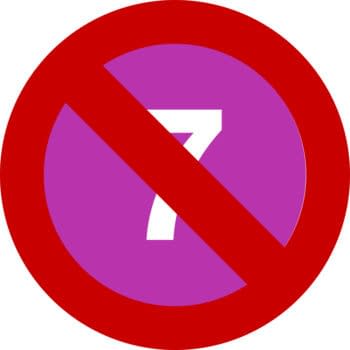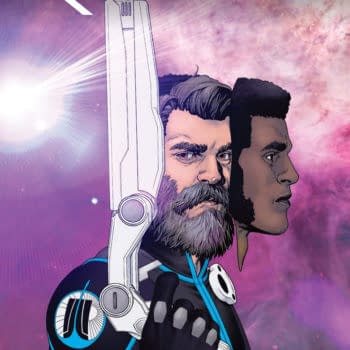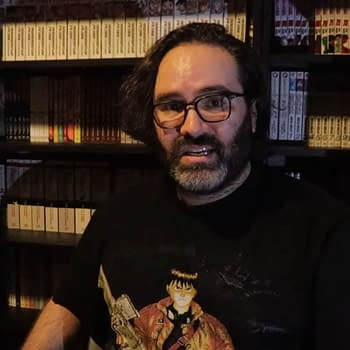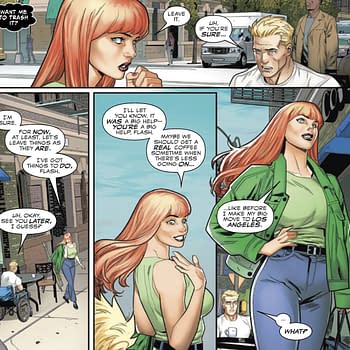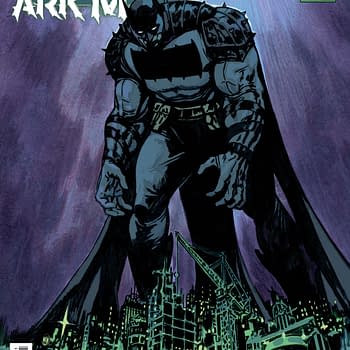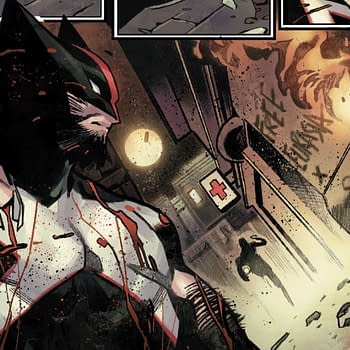Posted in: Comics, Conventions, WonderCon | Tagged:
Phil Jimenez And His Amazing Superfriends At WonderCon 2017
Peter S. Svensson writes for Bleeding Cool.
Phil Jimenez is the nicest guy in comics. It's not just that he took the time to talk to little kids in line for his panel before it began, asking them what costume they would like to wear if they had a choice. It's not that he always gives copious amounts of time to everyone, or that he worries about whether the audience is genuinely enjoying his panel.

No. What takes him from "decently nice" to "nicest guy in comics" is that when WonderCon offered him a spotlight panel, he decided that instead of having it be all about him, he invited a bunch of his friends to literally share the spotlight (panel),
When the panel began, Phil stated his reasoning for this unorthodox choice. "I'm pretty Youtubeable." continuing to explain that most of the common con questions can be easily found already answered by him through a Google search or two. He's done plenty of the traditional panel before, so this time he wanted to have a roundtable discussion with as many of his friends who were attending the convention as possible. Notably, Phil pointed out his former college buddy Scott Koblish would be in attendance, making it sort of a college reunion for the two of them.
But before the fun could begin, Phil made it clear that if the discussion got too heavy, or just not interesting, that anyone could raise their hand and ask Phil to change the subject. This never got used. He also quickly censored himself from using a common bit of profanity to spice up his description of the panel when he saw an adorable little girl in the front row.
Now, who was here for the Challenge of Phil Jimenez's Amazing Superfriends?! And what is one fact about comics that they can state?
David Baron, color artist, who has worked for DC in one way or another since he was 15 years old. You can follow him on twitter at @myzombies, because "DavidBaron" was already taken. His fact: He grew up as a fan of comics, so he deeply cares about the quality of the books he works on, striving to put out comics that he would want to read.
Christina Strain, who was a colorist at Marvel for 10 years, retired from that, then became a writer for The Magicians on Syfy, and is now relaunching Generation X in May. Her fact: that having worked in both Hollywood and in Comics, people in comics are AMAZING! (Also, seriously, someone needs to update her Wikipedia page. Like, a lot.)
Mike Choi, who has been drawing comics for 15 years at Marvel, Top Cow and DC. He's now taking a break from comics, working on painting (which Phil Jimenez then states that he is amazing at) and working on a creator owned book. His fact: "I really like the Justice League trailer."
Amy Chu, recently began writing comics, having done a Poison Ivy miniseries, some X-Files, and is now doing Red Sonja. "If they pay me, I'll write it." Her fact: She got into comic publishing originally to help out a friend who wrote for TV try to also get into comics, but when that friend's TV career took off, she was left with a small comic publishing company and decided to just write for herself, and amazingly enough it turns out people liked her writing!
Allen Passalaqua, colorist who has worked on books as diverse as Archer and Armstrong, The Guild and most importantly Battlepug, also teaches comics at the California College of Arts' MFA program. His fact: He loves the vision and scope of creating comics, being able to push himself to do the best he can possibly do.
Sterling Gates, comic TV and animation writer, most famous for his work on Supergirl with Jamal Igle, but has just recently written an episode for the TV series. His fact: The loves the heroes and the inspiration that he has drawn from these characters who give him the strength to stand for what's right.
Scott Koblish has drawn Deadpool for the past few years, and expects to be doing so for at least one more. He and Phil are contemporaries, which he is glad of, since Phil looks young so he probably does as well. His fact: He's not going to be at the con on Sunday. Ha.
There's some lively banter at this panel, and it'd be impossible for me to record of all it. I tried, Lord knows I tried, but alas. This wasn't as much of a panel as it was a group of geeky friends at a party just shooting the shit and having a good time.
You had to be there.
So, I'm going to give the gist of this, the basic outline, the fun facts that made this panel entertaining and just plain fun.
Phil asked what the best Storm costume was. Sterling Gates immediately responded with MOHAWK! Phil nodded in agreement.
Phil expressed some dissatisfaction because he's terribly undisciplined. "They give me work even though I'm going to screw it up."
Scott countered by asking if it's the fault of the publishers for giving unrealistic deadlines, but Phil responded that it was much more than that. Phil continued to explain that he gets easily distracted and easily thrown off-kilter when having to readjust his plans for things like unexpected crossovers. He's bad at recovering from that sort of thing, and rather than get back on the bicycle and continue after getting knocked off, he just stops. Likewise, he's now prone to overthinking everything he does, a habit he's had since drawing Infinite Crisis, and now he gets lost in thought when working.
Scott responded that once he gets the layout done, he doesn't worry about the individual panels, but now that Phil has brought up that concern, he's likely going to leave this panel as a nervous wreck obsessing over every detail. (Note: Scott Koblish is FUNNY in a way that mere text can not properly convey.)
David Baron commented that he's halfway between the two of them. He's highly organized and methodical with his work, but he gets very emotionally attached to his work as he wants to create powerful memories for the readers. So he spends a lot of emotional effort preparing, and then just cranks out panel after panel after panel.
The next topic Phil brought up was that one thing you only get in comics is a massive restructure of continuity. It doesn't happen in television. "Except when Bobby Ewing comes back from the dead." joked Phil. A few people got that one.
Christina Strain talked about how odd it is for her when writing Generation X to realize that some of these plot ideas have been done not just once, not just twice, but THRICE and the editors expect her to just drop a single line of dialogue to gloss over it, while she'd rather address the core concept and figure out why they're three-peating themselves. She does get frustrated when thrown for a loop, but mainly just needs to vent to someone else to get over it.
Phil's next question: If your kid said he wanted to be a comic artist, then what would you do?
David Baron's kid has absolutely no interest, having seen his Dad do conventions before. "Why do you go to shows, it's so boring! You sit behind a table all day!" stated the young child.
Christina Strain pointed out that since her mother was not supporting, that she feels obligated to do the same for her own child, though she would also ensure that the kid would be able to support themselves beyond comics.
Scott Koblish then reminisced about the times that he and Phil were students at Will Eisner's class at SVA, and how mainly they argued with Will Eisner. A lot. "He was a good sport about it." stated Koblish, explaining that he felt Eisner's point of view on the industry was skewed. He then explained that he doesn't get bored doing Deadpool because it's a book that allows for a lot of flexibility. He can do sorrow and humor in the same issue.
Mike Choi is going to be a father in the next two months, but hadn't thought about the idea of his child wanting to get into comics. He wasn't worried though, as it turns out his family has a history of getting degrees in one thing or another and ending up doing something else. He's got a business degree, and has worked on comics and video games. His sister Mary H.K. Choi has a retail merchandising degree, ended up writing a comic that Phil Jimenez drew for Vertigo at some point (surprising Mike, who didn't realize his sister had done it until much later) and now is a correspondent for Vice News.
Sterling Gates is the odd one out of the bunch, as his parents owned a comic shop. As such, pretty much from the day he was born he was interested in telling stories. So he ended up in art school, learned to make films, ended up in LA, met Geoff Johns and then fell into comics. "At no point was my mother ever discouraging." stated Gates, joking that since his father passed away, he has to assume he would be happy with his career.
Allen Passalaqua pointed out that there's no path to comics, there's just willpower. And that he got into coloring because he wanted to draw but wasn't a great sequential artist. Christina Strain agreed with that train of thought that lead towards coloring.
Sterling Gates then admitted that at film school, one of his senior projects was making an adaptation of The Odyssey, and he used Phil Jimenez's seminal Tempest miniseries as a basis of how to depict underwater scenes, stealing from it liberally.
This is where Phil asks us if we're getting bored, like how Netflix checks in to ensure you haven't died while binge watching Gilmore Girls. The audience is fine.
The earlier discussion on coloring reminded Phil of an anecdote about his colorist on Tempest, Carla Feeny. Her coloring was a spectacle. She used color pencil to create her guides, as this was a pre-Photoshop era, so the colorist would color a copy of each page by hand, and then those would be sent to the printer to do the separations and make it ready for print. The publisher of DC at the time apparently got upset because she wasn't using watercolor to create her guide, and as such, despite the fact that she was up for an Eisner, sidelined her from DC. Phil mused that it was probably a case of a higher up having one bad day and inflicting that on some one else, and that just one bad day can completely change a career.
(Don't worry about Carla though! She's got a fantastic career in fine art now!)
Christina Strain hadn't heard this story before, and mused that if she hadn't been allowed to experiment with different styles when coloring that she'd have quit coloring even sooner, remembering how the creative team had to slowly begin introducing "cel shading" coloring to Spider-Man Loves Mary Jane.
Allen pointed out that he takes photos of real life to use as coloring reference, and occasionally an editor will think that his coloring is unrealistic, that a sky would never be that color, and he can just send them the photo to prove them wrong.
Phil's next question was about outside inspiration for comics, since there are a bunch of creators who apparently only read other comics. He is primarily motivated by Alexander McQueen's fashion designs, by the gay sub-culture, by woodcuts of the 18th and 19th century, both Asian and European.
Mike Choi agreed that fashion is a big inspiration. When he started off doing comics, he had a bit of a Napoleon Complex, putting on airs that he wasn't influenced by comic book people, just by fine artists. (He's since recovered.)
An interesting anecdote about Alex Maleev came up, basically boiling down to the guy being unable to sincerely take a compliment without wanting to interrogate the person giving it to ensure they were genuine. Seems that he came from the sort of hard core art school that tears up your work if there was a single error, and that leaves scars.
Christina Strain has been reading The Magicians novels by Lev Grossman, who is apparently an amazing guy, but has also been into LGBT romance novels lately. Also, if a movie comes out she'll read the book first. "I'm not high brow." She's also big into listening to podcasts.
Amy Chu is inspired by everything in the news and in real life. "You go to New York, you overhear the weirdest conversations." she explained. She reads the technology section in The Economist, admitting that this makes her sound way more cerebral than in actuality.
Phil has been into watching documentaries.
Sterling Gates has a practice he calls Doc Sundays, where he alternates between watching classic Doctor Who, or a Documentary. He's also been rewatching a lot of the classic 80s film and television that inspired him, such as The Neverending Story.
This leads Phil to ask, "How do we decide what is good or bad?"
Sterling Gates immediately quips "WHAT IS ART?!" since this is a pretty weighty question Phil has just presented.
Phil explains that there's a lot of fiction from the 70s and 80s with terrible production values, but that stands up on a structural level. That it still works today, outside of just nostalgia. He uses the first V miniseries as an example. (I wish I could comment on that, but it came out before I was born.)
Allen brings up Space Planets as his example of something that has stood the test of time.
Scott Koblish then brings up the original Battlestar Galactica. "It was so weird. Everyone was in robes." He can't answer the question of whether it is good or not, because when attending the Kubert School, Joe Kubert broke him of the belief of anything being good or bad. Joe told him that all of the things that Scott liked as a kid were terrible, and instead showed him what HE liked as a kid, stating that those things were what was great. This confused Scott so badly that even to this day he's got issues about genuinely liking anything.
Sterling Gates then explained that the whole concept of "guilty pleasures" annoyed him, as you don't have to absolutely hate or love anything. There's no perfect piece of media, except for Pearl Jam's Vitalogy. (Or so he claims…)
Allen then related his difficulties as a kid growing up on a farm, having to make a trek to buy comics and then hide them from his friends and family because being nerdy where he grew up wasn't really an option.
Phil Jimenez then talked about how he does a lot of lecturing about Wonder Woman, primarily talking about her through the lens of Queer History and Feminist Theory, and how that has distanced him from the raw childhood love of the character through analysis and honest assessment into something greater.
Scott Koblish then asked Phil if he ever hands in art that he isn't happy with.
Phil stated, "If my inker needs it, I go 'this is terrible, have it.'" He then clarified that he keeps very little of his original artwork, selling it or giving it away.
Sterling Gates was astounded, because he personally would keep everything if he was an artist, so he asked the obvious follow up question: "Would you give me some?"
The floor was opened to questions. A nice guy named Avery had the first one, which started off with glowing compliments about Phil's work on Infinite Crisis (which I will agree was amazing), and about the time he drew Isis in the weekly comic 52. This lead Phil to digress about how he uses fashion to design characters, such as with Donna Troy's outfit that had a non-functional belt, which other artists couldn't understand, why would she wear a belt that you couldn't close? Phil stated that it's because it looks fantastic. "She wears stars for earrings. What do you want from her?"
The next question, from comic creator Viktor T. Kearny was about how Phil would design the ultimate Storm costume.
Phil replied that he'd talk to Viktor first for a consultation, asking him what he believed it would need. The answer being a cape, boots, and shoulder pads. Phil continued to think that most of the 70s Dave Cockrum designs are still amazing, since he considers superheroes to be big drag queens, not worrying about function or realism. That wearing a bathing suit and a cape for the look not the practicality is fine. "High heels in space. I love it."
The panelists were then asked for the one piece of their own work they treasure the most, what they are most proud of.
Mike Choi answered X-Men.
Christina stated Gert's death in Runaways, leading to jokes about SPOILER WARNINGS.
Allen stated Battle Pug, as he's done more effort onto coloring that webcomic than for most of his DC or Marvel work.
Sterling Gates stated Supergirl, and that the recent episode of the TV show he did with Mr. Mxyzptlk reminded him of how much he loved doing the comic.
Scott Koblish never looks back, always focusing on the future.
Amy wants to say Poison Ivy, but admitted that it was her Sensation Comics featuring Wonder Woman story about a female fighter pilot in Afghanistan.
David Baron stated Bay City Jive, which he did with Chew writer John Layman at Wildstorm, explaining that Layman was the first to believe in him, which put a lot of emotional attachment to that job.
Phil answered what most fans probably already suspected, the Tempest miniseries, explaining that those four issues were purely him, that he's never worked on a DC project since that wasn't marked with editorial interference. "It was just me, it was all me."
A fan asked about the idea of exploring sorrow in fiction, like Crazy Ex-Girlfriend or Bojack Horseman in comics.
Amy pointed out that while there are a wide variety of comics out there, many people are driven to escapist books like her Red Sonja, to get past the hard times they live in, using an example of the happy films that came out in the 1930s during the Great Depression.
Phil asked the final question of the panel, "What brings you joy?"
Mike Choi answered that working in comics does, and then made a sly comment about a certain Marvel Retailer speech that really, we've covered ad nauseum.
Christina responded with "RuPaul's Drag Race is back on!"
Amy mentioned that before she got into comics and no longer had disposable income, she got an Alexander McQueen clutch purse, which she can't wear or bring to conventions, but will bring to a future panel just to make Phil obsess over it.
Scott derives joy from other people, like when he talks to folks at conventions.
Finally, Sterling Gates is happy when he collaborates with others.
The panel ended, and while Phil was worried that the audience would find this approach off-putting, the response was positive.





